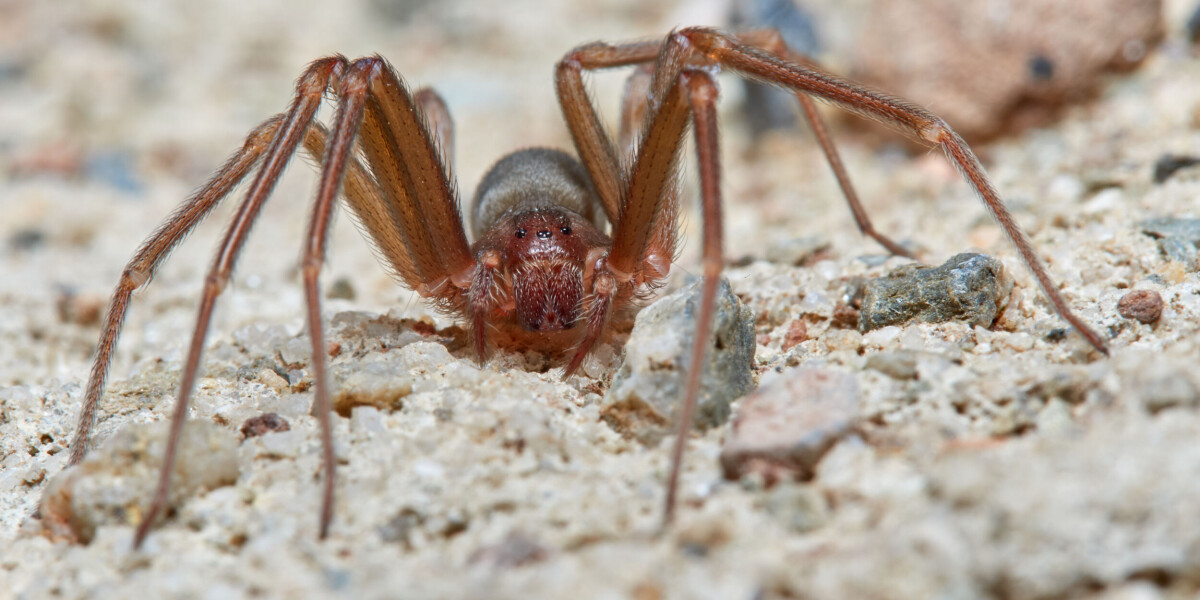
‘violin’ spider said to have killed man in italy: what risk in france?
- Select a language for the TTS:
- UK English Female
- UK English Male
- US English Female
- US English Male
- Australian Female
- Australian Male
- Language selected: (auto detect) - EN
Play all audios:

WE LOOK INTO WHETHER THIS POISONOUS ARACHNID IS ALSO FOUND IN FRANCE READER QUESTION: I READ A STORY ABOUT A MAN IN ITALY DYING FROM A SPIDER BITE. IS THAT SPECIES FOUND IN FRANCE? The
spider in question is claimed to have been a Mediterranean recluse spider, a small sandy-brown insect called in French as_ araignée violoniste_ (violinist spider) or italian _ragno violino_
(violin spider) after a violin-shaped mark on its back. The story was reported in French media including _La Dépêche, Midi Libre, La Montagne_ and _BFMTV_, borrowing from Italian newspaper
_Il Messaggero_. Konstantinos Moulas, a 58-year-old Greek businessman, was found dead in his hotel room at the Oasi di Kufra in Sabaudia, a small town south of Rome, the newspaper reported.
The cause of death was an anaphylactic shock, which Italian investigators think was probably caused by a spider bite. Colleagues of the man stated he had complained of discomfort, an itch
and a general malaise after visiting a kiwi greenhouse where it is thought he may have been bitten. The Mediterranean recluse is a potentially dangerous spider that is found in that part of
Italy and press reports speculate that it was the cause. However, there is so far not enough information to know for sure that the death was caused by that specific – or even any – spider,
two arachnologists (spider experts) told _The Connexion_. IS THIS SPIDER FOUND IN FRANCE? The Mediterranean recluse, known as ‘violinist’ spider because of a violin-shaped marking on its
back, is part of the genus _loxosceles_, which has several species, for example the _loxosceles reclusa_, which is only found in North America. It is feared by Canadians and Americans both
for its venom, which can cause necrosis of the skin, and from its tendency to hide and lurk in barns and houses, said Christine Rollard, an arachnologist from France’s national natural
history museum in Paris. Ms Rollard said however, there are very few bites reported from the _Loxosceles reclusa_ despite being one of the most dangerous species. In France the Mediterranean
recluse (_loxosceles rufescens_) was recorded by biologists as early as 1820 and it can be found around the Mediterranean, mainly in the Gard, Hérault, Var and Alpes-Maritimes. However,
“the number of bites reported for that species is even smaller”,Ms Rollard said. WHY IS IT MOST LIKELY NOT THAT SPIDER? Ms Rolland is not convinced that the death was caused by the spider,
given the fact no coroner’s report was mentioned in the original article. Notably, a bite from a _loxosceles rufescens_ is not usually known to provoke an anaphylactic shock, Ms Rollard
said, though it can cause a number of other symptoms. She said most reactions to a_ loxosceles rufescens_’ bite resolve themselves in two to three days, with sometimes a scab forming around
the bite that heals in another couple of days. An ulceration can heal in around three to four weeks in more serious cases. The most dangerous bites – around 10% – can however have harmful
effects on internal organs as well. “The spider bites the skin with difficulty,” said Anne Bounias Delacour, a spider expert from a consultancy called Fils et soies. She also does not
believe the _loxosceles rufescens_ caused the death. The spider is one centimetre long and its stings are often too small to pierce through skin, she added. She said it is only capable of
piercing the skin when is subject to a lot of stress during a defensive reaction. There have been no deaths reported from a brown recluse spider in the United States in 2023, according to
BOSTON CHILDREN’S HOSPITAL, in 2023. The last death from a brown recluse happened in 2004, according to another American media AI.COM, citing records from the American Association of Poison
Control Centers. “I have never seen it happen yet in Europe,” Ms Bounias Delacour said. RELATED ARTICLE FRENCH WOMAN BITTEN AFTER ACCIDENTALLY KNOCKING SPIDER INTO HER EAR BLACK WIDOW SEEN
IN SOUTHWEST FRANCE FOR FIRST TIME IN TWO CENTURIES
